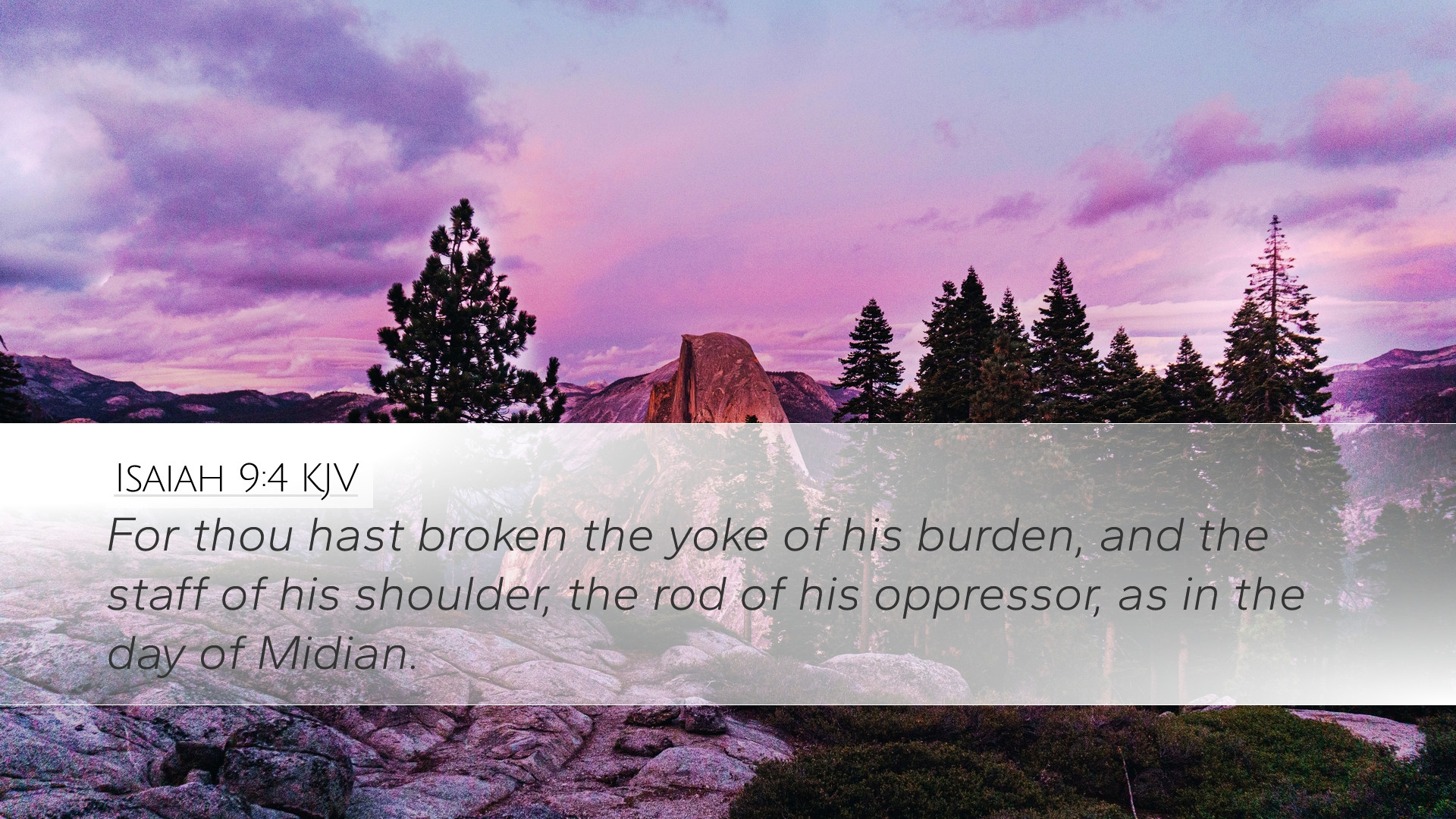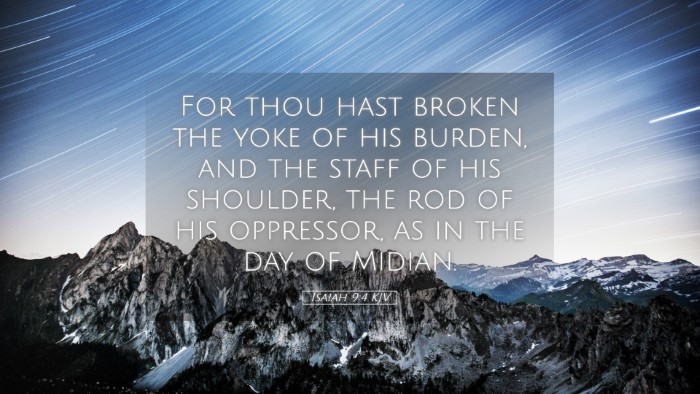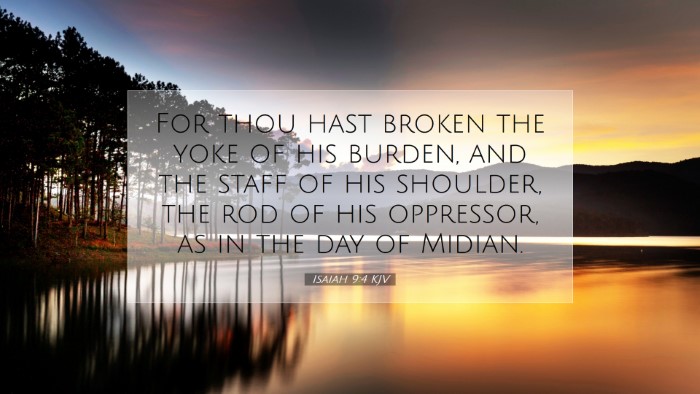Commentary on Isaiah 9:4
Isaiah 9:4 (KJV): "For thou hast broken the yoke of his burden, and the staff of his shoulder, the rod of his oppressor, as in the day of Midian."
Introduction
The verse Isaiah 9:4 encapsulates a powerful message of deliverance and triumph over oppression. It situates itself within a broader prophetic context where the future of God's people is envisioned through the hope of redemption and restoration. This commentary synthesizes insights from prominent public domain sources to explore the depth of meaning in this verse.
Contextual Background
Isaiah prophesied during a tumultuous period marked by national decline and moral decay in Israel. The Assyrian threat loomed large, and chaos prevailed. The hope presented in Isaiah 9 is both timely and profound, offering assurance of God's intervention and the ultimate victory over enemies of Israel.
Key Themes in Isaiah 9:4
-
Deliverance from Oppression:
Matthew Henry emphasizes that the imagery of a broken yoke signifies liberation. The yoke typically symbolizes bondage and submission to a harsh ruler. This prophetic declaration points toward a future where God will remove the burdens placed upon His people.
-
Victory over Enemies:
Albert Barnes elaborates on the comparison to the "day of Midian," referencing the historical victory of Gideon over the Midianites, where the odds were visually insurmountable. This serves as a reminder that God's intervention can transform dire situations dramatically.
-
Judgment on the Oppressors:
Adam Clarke notes that the "rod of the oppressor" signifies divine judgment upon those who afflict God's people. The removal of oppressive rule indicates God's commitment to justice and righteousness.
Detailed Commentary
Broken Yoke of Burden
Henry discusses the symbolism of the “yoke,” which represents the burdens that fall upon the shoulders of the oppressed. In this context, Isaiah reassures the Israelites that God will shatter these burdens. The “yoke of his burden” further illustrates the subjugation of God’s people by foreign powers.
Staff of Shoulder
The phrase “the staff of his shoulder” epitomizes the tools of oppression that have long caused suffering. Barnes interprets the "staff" as a means of governance or oppression, highlighting the promise of a future where oppressive authority is dismantled. The indication is not only of physical freedom but a spiritual and emotional restoration as well.
The Rod of His Oppressor
Clarke offers insight into the “rod” as both a symbol of authority and a means of punishment. He draws parallels to the instruments used by the oppressors in the time of Israel’s captivity. The imagery promises not just liberation from these tools of punishment, but God’s active role in overcoming injustice.
Implications for Believers
-
Hope in God’s Deliverance:
In recognizing the future hope outlined in Isaiah 9:4, believers today can draw encouragement from God’s promises. The historical context provides a lens through which to understand the present struggles, validating the reliance on divine intervention.
-
The Nature of God’s Redemption:
For pastors and theologians, this verse becomes a foundation for teaching on God’s nature as a deliverer. The emphasis on breaking burdens reflects God’s desire for freedom and wholeness for His creation.
-
Justice and Righteousness:
The commentary highlighted the theme of divine judgment on oppressors. This serves as a cautionary reminder today about the importance of upholding justice, especially within societal structures where oppression can prevail.
Conclusion
Isaiah 9:4 is heralded as a verse of hope and assurance amidst despair. As we reflect on this passage, we are reminded that God's power is active in the world, bringing about deliverance from all forms of oppression. The insights from Matthew Henry, Albert Barnes, and Adam Clarke illuminate not only the historical aspects but also the enduring theological principles applicable for Christians today. As we share in the victory of Christ, we too are called to proclaim liberty and truth in our communities.


